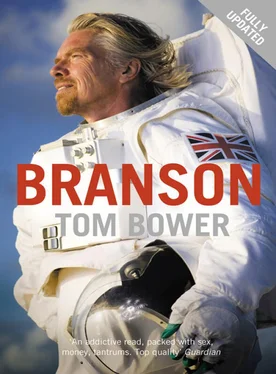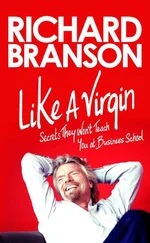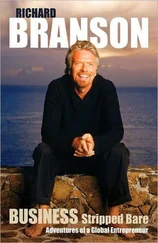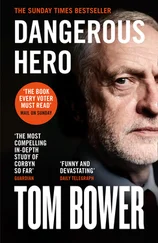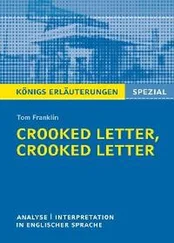As for the £60,000 tax payments and fines, his cabal assumed the same Masonic relationships which had saved Branson from conviction and public humiliation would arrange the money. None could imagine that his imminent collapse could be forestalled only by a bravura performance.
‘On my life,’ Branson bluffed to his creditors, ‘Virgin’s finances are fine.’ The company, he repeated, was not in financial peril. The flow of cash from fifteen new Virgin record shops opened across the country substantiated the denials of fragility. Branson and Powell precisely timed the opening of each shop in a different town to secure interest-free cash for two months before payments were required. Other sources of income remained undisclosed. Walking a tightrope was intoxicating but the chaos had become perilous. Virgin Records was not incorporated as a company. Branson had forgotten the legalities. His employees paid neither tax nor national insurance. For four years, he had been trading without proper financial accounts. Bereft of cash, Branson was perplexed how to equip Tom Newman’s recording studio at the manor. ‘Let’s play roulette at the Playboy Club in Park Lane,’ he suggested to Newman. ‘I’ve got a winning system.’ Using £500 taken that night from the till of Virgin’s shop in Notting Hill Gate, he and Newman shuttled between two tables as Kristen Tomassi, his blonde American girlfriend, gazed with increasing bewilderment. ‘It’s the last bet,’ Branson gritted at 5 a.m., clutching a few chips. He had risked everything; his system had failed. The flick of the wheel was lucky. ‘Great,’ he sighed as he stepped into Park Lane with £700. Before the shop opened later that morning, the original money was restored and the profits divided with Newman. Twenty-five years later he could speak from experience that the National Lottery compared to the roulette wheel was ‘a licence to print money’.
Tom Newman’s enthusiasm, Branson discovered, was not matched by his technical expertise. The guitarist knew little about the technology of recording music. For reassurance, Branson consulted George Martin, the Beatles’ producer. Martin laughed. Branson was proposing a four-track studio while Martin was installing sixteen tracks and much more. ‘We can’t afford all that,’ Branson told Newman. ‘We’ll have to busk it.’ They would buy second-hand equipment and Newman would learn on the way. ‘I’ve found some cheap mixers and old speakers,’ announced Newman proudly. ‘But the acoustics won’t be much good.’
‘Keep quiet about it,’ ordered Branson.
‘The best sound you can get,’ Branson boasted to musicians and their managers in a frenzy of telephone calls and personal visits to lure the unwary. ‘Sell them the image,’ suggested John Varnom, the inventor of the Virgin name. ‘Act the part of the alternative. No suits and ties like Decca.’ Compared to the unfriendly basements hired by the big studios in London, the manor offered a party. Unlimited meals and alcohol served in manorial splendour by four attractive girls, with the promise of huge bedrooms upstairs, created the illusion of a sex hotel with nightly orgies where drugs were served with the cornflakes. In truth, there was less actual sex at the manor than occurred in London nightclubs but Branson calculated that the promise of a party would conceal the inferior quality of the sound and enhance his profits. His intuition proved shrewd.
Branson persuaded Newman and the eager girls to accept low wages. Newman’s screaming protests when Branson frequently failed to send any money were brushed aside. ‘I’m also not being paid,’ lamented Branson, the victim. None of the uninquiring spirits enjoying his company realised that the principal beneficiary of their own low wages was Branson, focused entirely on his own agenda.
Circulating among his staff in the Sun in Splendour, the local pub on Portobello Road, puffing their cigarettes, sipping their beer and groping the girls amid jovial banter eased suspicions about an ambitious businessman. Touchy-feely embraces, pecking at cheeks and spasms of generosity defused the impression of a hierarchy and encouraged the notion of the Virgin family. Employment at Virgin, Branson had persuaded himself and his loyal staff, was benign, generous and equitable.
Occasionally providing a company car, invitations for meals in restaurants and organising holidays for some staff, he was the life and soul of his own party. Acting the fool in front of big audiences, skiing naked down alpine slopes and hosting hilarious mystery away-days terminating in Croydon solidified loyalty and trust in him. For those condemned to dreary office lives, Branson offered the chance to sense magic. Only the cabal, those close to Branson, understood that their garrulous host had created the family as protection from loneliness. Branson required perpetual company to protect himself from boredom. The anti-intellectual was incapable of self-entertainment. But his permanent party could not continue unchecked.
One year after the exposure of his purchase tax fraud, Branson was compelled to abandon the convenience of concealment through chaos. ‘You’ll have to become directors of proper companies,’ Jack Claydon, an accountant, told Branson. In September 1972, Virgin Records was incorporated and over the following months ten other companies were created. Legal compartmentalisation suited Branson’s instinct for secrecy and provided the machinery to transfer money from one company’s account to another’s, giving the appearance of solvency and preventing bankruptcy in one activity infecting the whole business. ‘I’m spending a lot of my time,’ Jack Claydon told a friend, ‘juggling banks and creditors in order to play one off against the other and help Branson to stay solvent.’ Claydon, an inconspicuous character, was ideal for many discreet shuffles.
Telephoning early in the morning, Branson summoned the accountant to his houseboat. Unlike a previous call when Branson had even had to ask for advice where to find a hooker for an American contact, Claydon was asked to give respectability to Branson’s latest venture. ‘I’m going to sign a deal and I need a letter to the bank to borrow more money.’ Claydon’s task was to bestow credibility on Branson’s optimistic financial projections of sales and profits. ‘Make it look good,’ urged Branson.
‘The bank wants to meet us,’ Claydon reported later that day.
Lunch with Peter Caston, his bank manager, at Simpsons was Branson’s opportunity to shine. Wearing a suit and tie, his enthusiastic projections of wealth were only marred, despite Claydon’s warning glances, by excessive talking. The conservative banker was bewildered and became cautious, especially after Branson’s cheque for lunch was rejected. The guest from Coutts reluctantly paid. Branson’s strength was his robust refusal to accept defeat. ‘You’re never morose,’ said Claydon in grudging admiration of a man whose energy exceeded conventional business talent. ‘You’ll always find an escape.’ Branson laughed. Claydon even urged him to ‘stop interfering in the business’ to avoid creating chaos. The accountant, whose audit validated the Virgin business, thankfully did not understand that chaos was an essential to Branson’s appearance as a classless wealth creator. Parroting the sixties mantra about ‘helping to make the world a better place’ concealed a more straightforward ambition: that it should be a better place for Richard Branson.
* Not her real name.
* Throughout the book Virgin Records is not distinguished from the Virgin Music Group.
Конец ознакомительного фрагмента.
Текст предоставлен ООО «ЛитРес».
Прочитайте эту книгу целиком, купив полную легальную версию на ЛитРес.
Читать дальше
